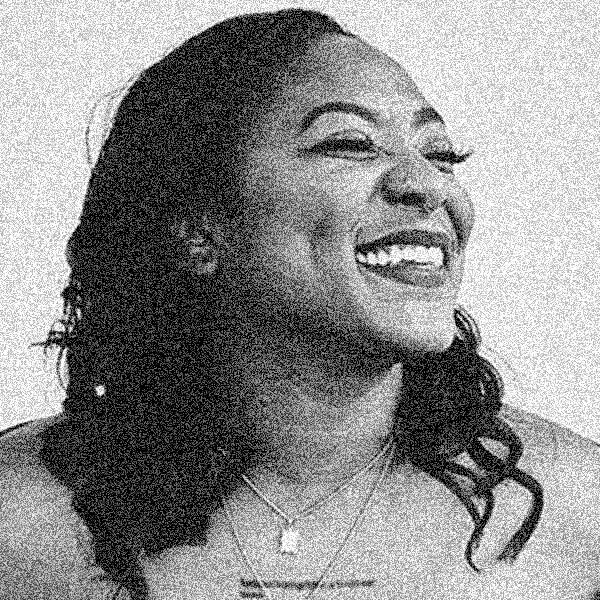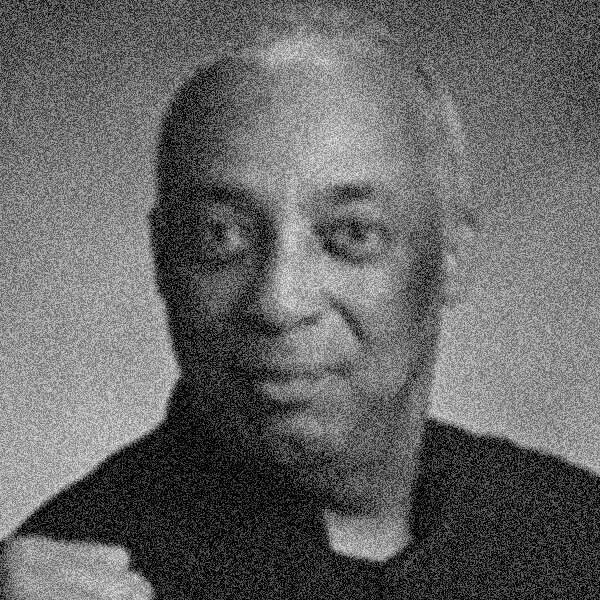black
futures
month
2024
This year for Black History Month, ESSENCE is honoring a small group of changemakers who are fighting for our collective liberation with our inaugural “Black Futures Now” list.
Honorees buck the status quo and are working towards social, economic, and racial justice from a progressive or radical Iens.
Meet the activists, academics, and more working to ensure we have a beautiful, bold, Black future NOW.
black
futurists
Academia
Dr. Charisse Burden-Stelly
Dr. Charisse Burden-Stelly is an Associate Professor of African American Studies at Wayne State University. She is a scholar of critical Black studies, political theory, political economy and intellectual history. Burden-Stelly is the author of W.E.B. Du Bois: A Life in American History, coeditor of Organize, Fight, Win: Black Communist Women's Political Writings, and co-editor of Reproducing Dominance: On the Caribbean Postcolonial State. She has delivered more than fifty talks, public lectures, and conference papers, and numerous grants, fellowships and travel awards for her work.
What is one actionable step that someone can take to make sure our future is Black, bold, and beautiful?
Kendrick Sampson
Kendrick Sampson is an actor and activist who has participated in social justice campaigns ranging from Standing Rock to Black Lives Matter. Vocal during the SAG-AFTRA strikes about the mistreatment and marginalization of Black artists, Sampson has appeared on Vampire Diaries (CW), How to Get Away with Murder (ABC), and, most recently, HBO’s critically acclaimed Insecure.
As the co-founder and President of the BLD PWR initiative, Sampson strives "to build a community of freedom fighters in the entertainment industry — liberation-motivated artists, storytellers, athletes, and musicians.”
ENTERTAINMENT
Marc Lamont Hill
Dr. Marc Lamont Hill is a Presidential Professor at the City University of New York and has brought his academic prowess to the world of media as a host of BET News, The Grio, and AlJazeera. An outspoken advocate for marginalized people, from Palestine to the United States, Dr. Hill has held positions at Morehouse College, Temple University, and Columbia University.
media
Erika Alexander
Actress, activist, and filmmaker Erika Alexander is the co-founder of Color Farm Media. Color Farm’s debut film, John Lewis: Good Trouble about the legendary Congressman, won the NAACP Award Best Documentary and was nominated for three Emmy Awards. She has depicted memorable characters in everything from the Jordan Peele thriller Get Out to her iconic role as Maxine Shaw in the hit sitcom Living Single.
ENTERTAINMENT
Alphonso David
Alphonso B. David, an accomplished and nationally recognized civil rights lawyer and advocate, is the President & CEO of the Global Black Economic Forum, where he engages with world leaders, business executives, policymakers, entrepreneurs, activists, and consumers globally on thought leadership; corporate and entrepreneurial career development; and advancing economic and social justice for marginalized communities across the globe. David has spent more than two decades in the private, public, and not-for-profit sectors, where he has worked to advance the rights of marginalized communities through policy, legislation, litigation, and advocacy.
LAW
Inez Barron
Inez Barron, a former New York City Councilmember and New York State Assemblymember, spent 36 years working in the city’s public school system, first as a teacher, and later as an administrator, ultimately retiring as a principal before entering electoral politics. She served Brooklyn’s East New York neighborhood as the Chair of the Committee on Higher Education and led passage of a landmark environmental justice bill in New York City spearheaded by former Council Member, and husband, Charles Barron.
Elected officials
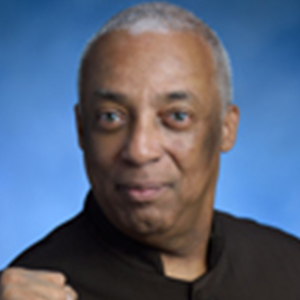
Charles Barron
Charles Barron, a former member of the Black Panther Party, served as a New York City Council Member and New York State Assemblymember for over two decades. As a Council Member, he served as Chair of the Committee on Higher Education and secured over $15 million in funding to renovate three parks, secured allocations for two new $80 million schools, and fought to create real affordable housing in East New York, a working-class Brooklyn community. As an Assembly Member, he introduced the first state bill in the country that would create a commission on reparations remedies, which led to NY passing its landmark law in 2023.
Elected officials
Alicia Garza
An innovator, strategist, organizer, and Alicia Garza is the co-creator of #BlackLivesMatter and the Black Lives Matter Global Network, the Strategy & Partnerships Director for the National Domestic Workers Alliance, and the co-founder of Supermajority. Alicia founded the Black Futures Lab to make Black communities powerful in politics, and believes that Black communities deserve what all communities deserve — to be powerful in every aspect of their lives.
activism
Angela Ferrell-Zabala
Angela Ferrell-Zabala serves as the first-ever Executive Director of Moms Demand Action. She’s a lifelong community organizer passionate about bringing people together and a Washington, DC-based mom of four. In her role, Angela leads Everytown’s grassroots advocacy efforts of Moms Demand Action and Students Demand Action and is helping to craft a vision for the next decade of life-saving advocacy.
activism
Maisie Brown
A grassroots activist political science student at Jackson State University, Maisie Brown is the lead coordinator of the Mississippi Student Advocacy Team. In response to the water crisis in Jackson, she created a team of college students to make water deliveries across the city of Jackson to elderly, disabled, and low-income households who did not have access to city distribution sites.
activism


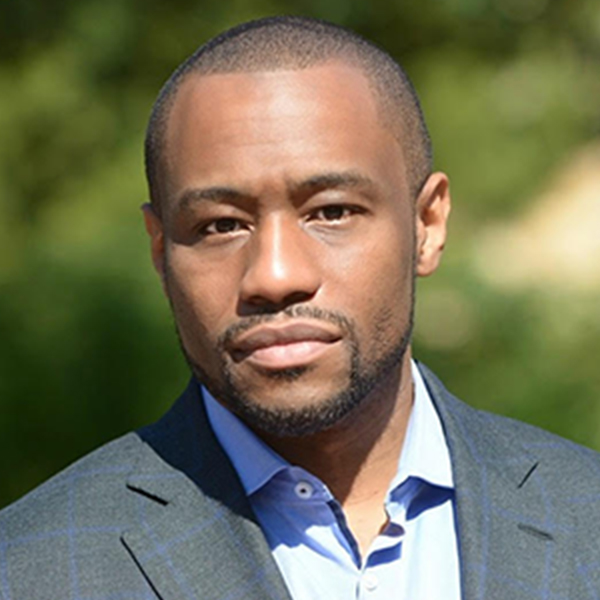
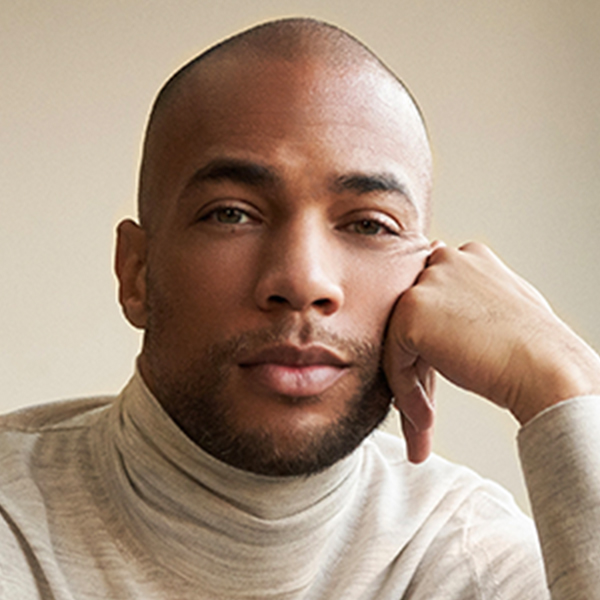


Mawuli Davis
Mawuli Mel Davis, the founding partner of the Davis Bozeman Johnson Law, is an Atlantabased African-centered civil rights attorney, human rights organizer, and author. Davis Bozeman Johnson Law is one of Georgia’s largest African American-owned law firms with offices in Savannah, Statesboro, and Decatur.
LAW



Q & A :
Erika Alexander
Everything is about narratives. Everything. And those who control the narratives, control the world. Storytelling is the most powerful tool for change in the world, and story is the conduit to our hearts and minds. It's what galvanizes people to join movements or abandon them.
So, if we want to create a future that is, "Black, bold and beautiful," we must access and deputize talented creators, representatives, and executives, and compel them to join us to embrace a diverse, inclusive, narrative. One that will shape the path for a greater movement. In turn, citizens, of every creed and color, can grow from it, communicate with others and take action.
The good news is there is no experience required, but imagination is essential. Imagination is the biggest nation, and the battlefield we're on is the circumference of your head, approx. 22 inches from ear to ear. We’ll need to launch a counter offensive of stories that can occupy that sacred space, because tomorrow's future is already here, and we will only succeed if we are together. IF story is our ammunition, and storytellers and creators help to prepare the way, we will build our better tomorrow - for everyone - today.
Charles Barron
“Organize with, or establish an independent Black radical political movement to secure, local political seats of power for the purpose of utilizing reformist tactics to realize systemic transformative revolutionary change! Follow principles over personality cults. Follow collective democratic leadership over individualistic dictatorial "ego-ship." Revolution is the solution!
Inez Barron
First, know yourself. Look inside yourself to develop high integrity, and an unwavering, unequivocal commitment to your core values. Develop self-confidence grounded in your competency. Stay embedded amongst our people to never lose touch with our plight. Remember upon whose shoulders we stand and persevere through the onslaught of attacks and betrayals. Align with like-minded warriors to overcome obstacles, reach objectives and inspire the people to “dare to struggle, dare to win.”
Maisie Brown
One actionable step that someone can take in the fight for environmental justice is starting the conversation in your home and community. Although it seems miniscule, many impacted Black and brown communities feel the effects of climate change and environmental injustice, but do not have the language to discuss what is actually happening to their communities and therefore cannot properly express their voices and concerns. Calls and accountability to local and state officials are also critically necessary so lawmakers can't ignore the concerns of their constituents. Environmental injustice is a slow, painful death. And people like me will be the first to feel the effects.
Dr. Charisse Burden-Stelly
One actionable step we can take to ensure a bold, Black, and beautiful future is to join a movement organization. Struggling, studying, and strategizing with our comrades reminds us to be diligent and disciplined, courageous and critical, patient and people-centered, while striving to transform ourselves into better human beings. Without organizing and organizations, we can’t hope to build a mass movement to bring about a future in which Black, colonized, and otherwise oppressed peoples can truly flourish.
Alphonso David
Be inspired by our past and hopeful about our future by staying firmly in the fight for economic opportunity. Don't be intimidated by those wishing to turn back the clock. Believe in ourselves and our community by investing in and supporting Black businesses and the tools that grant access: education, technology, and capital.
Mawuli Davis
“To ensure that our future is bold, beautiful, and Black we all must be active in organizations, that at their core, are safe spaces where our radical imaginations are nurtured and where we are empowered to work collectively. We need organizations where we can confront our internal contradictions, while we co-labor to manifest the highest aspirations of the Black Liberation Movement. Our future will be determined by how well we understand and embrace our history, harness technology, and create art that inspires us to become better versions of ourselves. The quality of our future will be directly correlated to our ability to operate collectively within organizations, and not just as individuals."
Angela Ferrell-Zabala
Black communities have been historically, systemically under-resourced when it comes to having their basic needs met. One of the many devastating consequences of this is the disproportionate amount of gun violence these communities face - much of which never even makes the headlines. We have to remind ourselves and each other that even when it’s frequent, gun violence isn’t normal. We all deserve to feel safe in our communities.
Individuals can underestimate how much potential we have to reshape the culture around us when it comes to gun violence prevention. Everyday acts like engaging in conversations about gun violence prevention, promoting secure firearm storage, helping others meet their basic needs, and prioritizing peace over conflict can redefine how our communities think about safety and break cycles of violence. This culture shift is just as crucial as implementing effective gun safety laws in preventing tragedy. We all have a role in this movement; no action is too small.
Alicia Garza
“Despite relentless attacks on our right to vote, Black communities have shown up, shown out, and changed the trajectory of this country for the better. In the last decade, we have transformed the national landscape in ways that bend toward freedom because we have a lot at stake and a lot on the line.
Every day, policies about us and our lives are being made without us. To change that, we have to make sure we have the tools we need to design and push for policies that change our lives for the better. That’s why we started the Black to the Future Public Policy Institute – to help train us in policymaking, so that we are at the table, whether or not we are invited. You can apply to join the Institute or you can contribute to our work to make sure we have what we need to train our communities in policymaking that is for us and by us. Join us at www.black2thefuture.org.
Marc Lamont Hill
In the current era, so much of what we do is in isolation. But history teaches us that we are stronger when we are working and building and struggling together. From Fannie Lou Hamer and Ella Baker to Malcolm X and Martin Luther King, our most treasured freedom fighters have always been linked to organizations and movements bigger than themselves. We must do the same today. If we are serious about freedom, we can't be in isolation. From study groups to direct service organizations to social justice collectives, whether digital or in-person, we must join communities that are committed to our liberation. And if we can't join one, we must build one.
Kendrick Sampson
Forreal tho - unapologetically invest in Black. We are expert culture builders. Let’s pull our time, money, talents, resources and power out of institutions that prove that they don’t care about us like Hollywood and mainstream media. Instead, pool and/or invest them into creating our own Black micro-economies, new outlets, mutual aid funds for creatives and cultural preservation and production. Our stories, art and culture are directly connected to our wellness and our power. We need new economies and power centers, networks of communication, art and distribution that will replace the old guard. Shit, you can always invest in BLD PWR, we’ll take your money and do the damn thang!









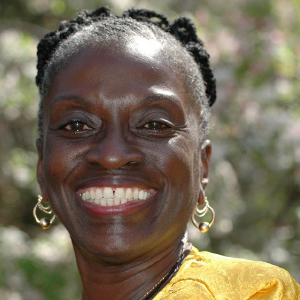


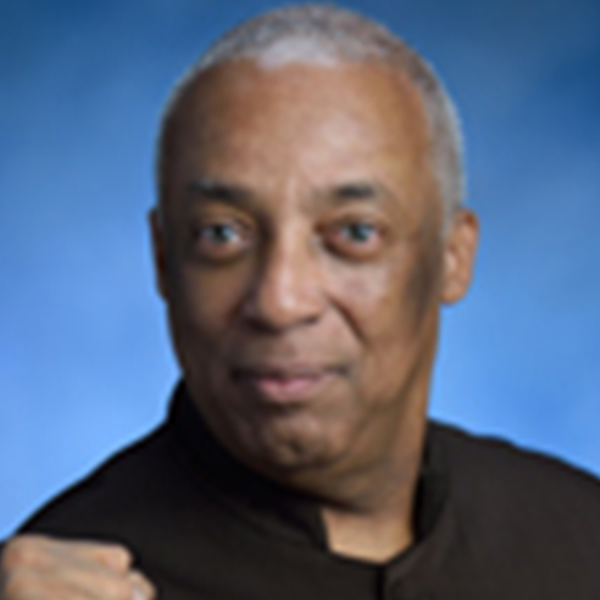

View bio

View bio

View bio

View bio

View bio

View bio

View bio

View bio

View bio

View bio

View bio



